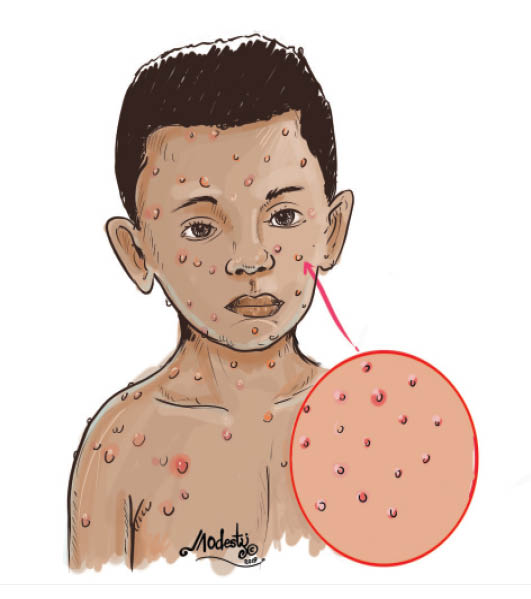Preventing skin infections
By Maijiddah H. Ndanusa The skin is the largest organ of the human body. Its function is to protect the body from infection. However, sometimes the skin itself becomes infected. According to a community health specialist, Dr Khadijah Lukman Dolapo, skin infection occurs when parasites, fungi or germs such as bacteria penetrate the skin […]

Preventing skin infections
By Maijiddah H. Ndanusa
The skin is the largest organ of the human body. Its function is to protect the body from infection.
However, sometimes the skin itself becomes infected. According to a community health specialist, Dr Khadijah Lukman Dolapo, skin infection occurs when parasites, fungi or germs such as bacteria penetrate the skin and spread.
She said skin infections are different from rashes.
“A rash is an area of swollen or irritated skin. While rashes can be symptoms of some skin infection; a person with a rash does not necessarily have an infection,” she said.
Dr Dolapo said the symptoms of skin infection include redness of the skin, a rash, itching, pain and tenderness.
Other symptoms are pus, skin slouching and blisters.
The expert said skin infection could be diagnosed through a good medical examination, adding that “a medical exam is the best way to determine what is causing skin infection and doctors can identify the type of skin infection based on the appearance.”
She said skin infection could be prevented in the following ways:
– Frequent hand washing
– Use an alcohol-based hand sanitiser
– Washing hands after using shared equipment
– Washing hands after contact with others potentially infectious wounds, skin or soiled bandages.
She said mild skin infections may be treatable with over the counter medications and home remedies while others may require medical attention.
She added that skin infection could be treated depending on the cause of the infection and the severity.
“Some viral skin infections may improve on their own with days or weeks, while bacterial infections are often treated with topical antibiotics applied directly to the skin or with oral antibiotics and if the strain of bacteria is resistant to treatment treating the infection may require intravenous antibiotics administered at the hospital,” she said.
Communities give humanitarian awards to groups for saving lives of women, children in Bauchi
